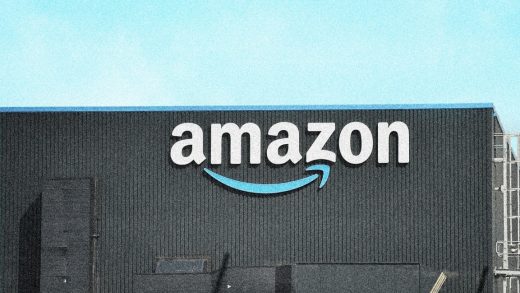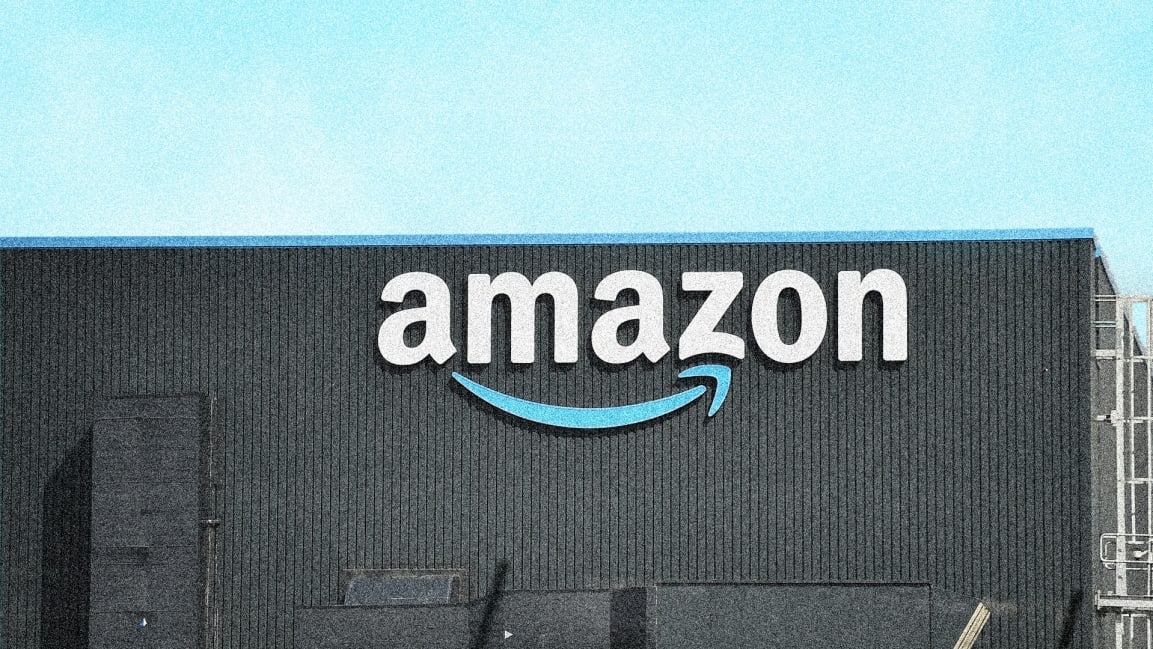Amazon ditches controversial ‘ambassador’ program that used warehouse workers on Twitter
Amazon has reportedly ended its controversial program through which certain workers tweeted nice things about the company on social media, closing the book on what cynics might call a case study in how to never market.
Now, insiders tell the Financial Times that Amazon quietly shuttered the program late last year because senior executives “were unhappy with the scheme’s poor reach.” The report also says Amazon did its best to scrub away all traces of the online messages that (as originally envisioned by the Amazon boardroom anyway) were supposed to help improve the company’s public image.
Reached for comment about the fate of the program, an Amazon rep told Fast Company, “The best way for people to know what happens behind the scenes at Amazon is to see for themselves—that’s why we’re focused on giving live tours daily across the US and Europe.”
Unfortunately for Amazon, the program backfired almost from the start, getting immediately ridiculed by the press. A number of parody accounts ultimately materialized, pretending to be workers who’d gone rogue, tweeting about “father Bezos” and their love for “3-minute regulated breaks between shifts.”
Meanwhile, the real-deal ambassadors had been handpicked by Amazon, some apparently from managerial positions, and leaked documents showed that they were taught to reply in a “blunt” yet “polite” manner to bad tweets. They were supposedly groomed to push a counternarrative—to, in Amazon’s words, leave “no lie unchallenged” by saying things like “No, that’s not right. I worked in an Amazon FC for over four years and never saw anyone urinate in a bottle.”
Essentially, Amazon’s idea was for this to look quasi-organic, as if the employees were defending Amazon of their own free will, albeit from handles that all began with “@AmazonFC.” As a result, Amazon never promoted its individual handles, though it did eventually confirm that real employees were behind the accounts; and those employees claimed their new PR side gigs weren’t done for extra pay, but rather had become part of their regular work duties. Ferreting out these accounts briefly became a media pastime; investigative journalism outfit Bellingcat logged almost 60 active ambassador accounts in America and Europe in 2019. Amazon isn’t confirming if it played a role in removing them, but all these accounts have been either deactivated or suspended, except for three.
A quick look at these three ambassador accounts perhaps shows why Amazon elected to discontinue the program.
This is a recent tweet by Ambassador No. 1:
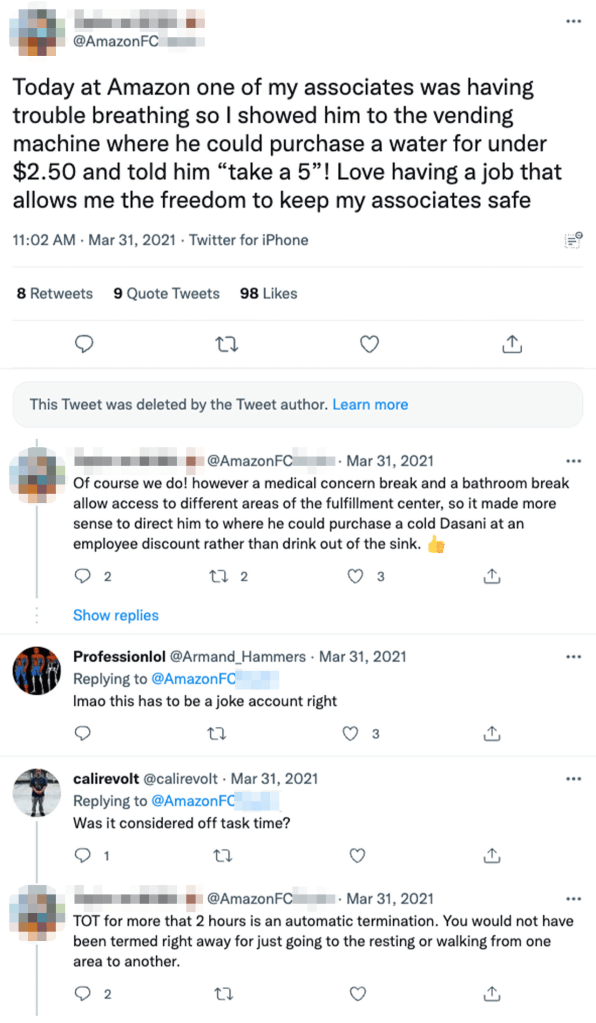
Here’s that person last April, while Amazon was courting controversy for its union-busting tactics:
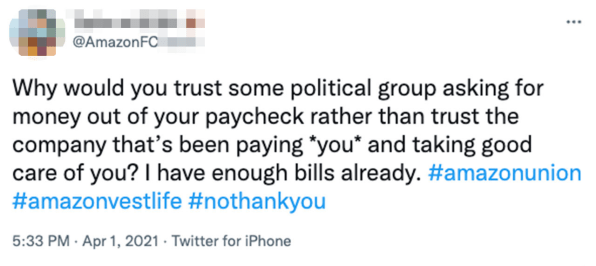
As part of their ambassadorial duties, this person, at one point, also posted, “Finally back from my #Suspension! Nice try trolls :P,” and they carved out time to reply to a nude-butt thirst trap that was captioned, “In my prime, even amazon couldn’t fuck with my delivery.” The ambassador’s comment was: “looking good! did your package arrive on time?”
Also, while Amazon was maybe frustrated with the program’s reach, it does appear that the accounts attracted considerable engagement from one group in the public sphere: trolls.
Here’s Ambassador No. 2 replying in earnest to a troll they perhaps didn’t realize was being a total ass:
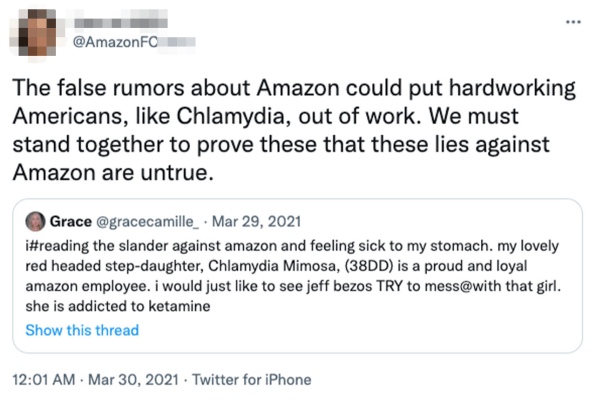
And here’s a tweet from Ambassador No. 3. It’s one of six tweets currently posted by the account, and it publicly “suggests” that Amazon may have paid ambassadors in kind instead of with cash:
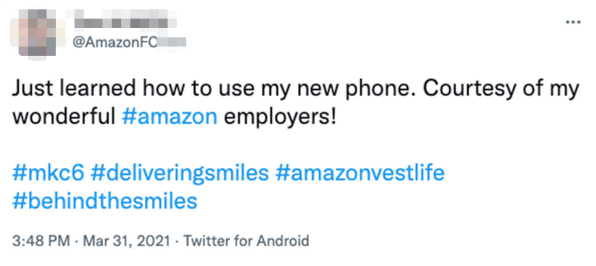
At one point in time, ambassadors’ Twitter accounts linked to a website where people could sign up to virtually tour Amazon fulfillment centers themselves. That seems to be the direction toward which the company has moved, promoting live walk-throughs of warehouses, which puts PR back squarely in Amazon’s own hands.
This post has been updated with Amazon’s response.
(39)

